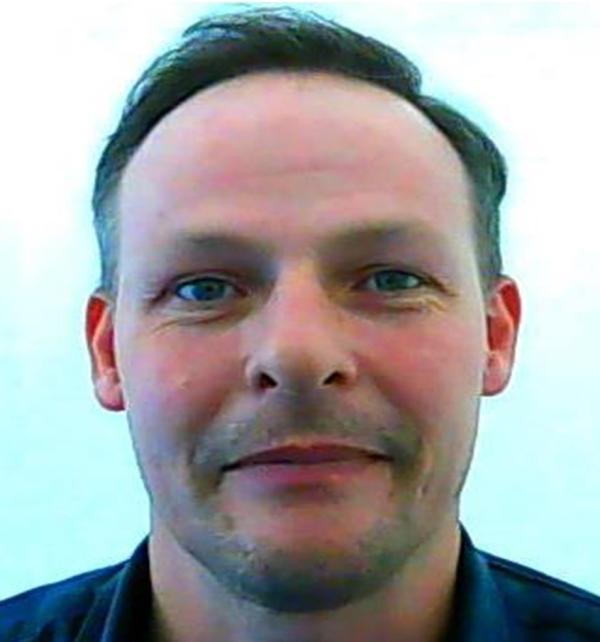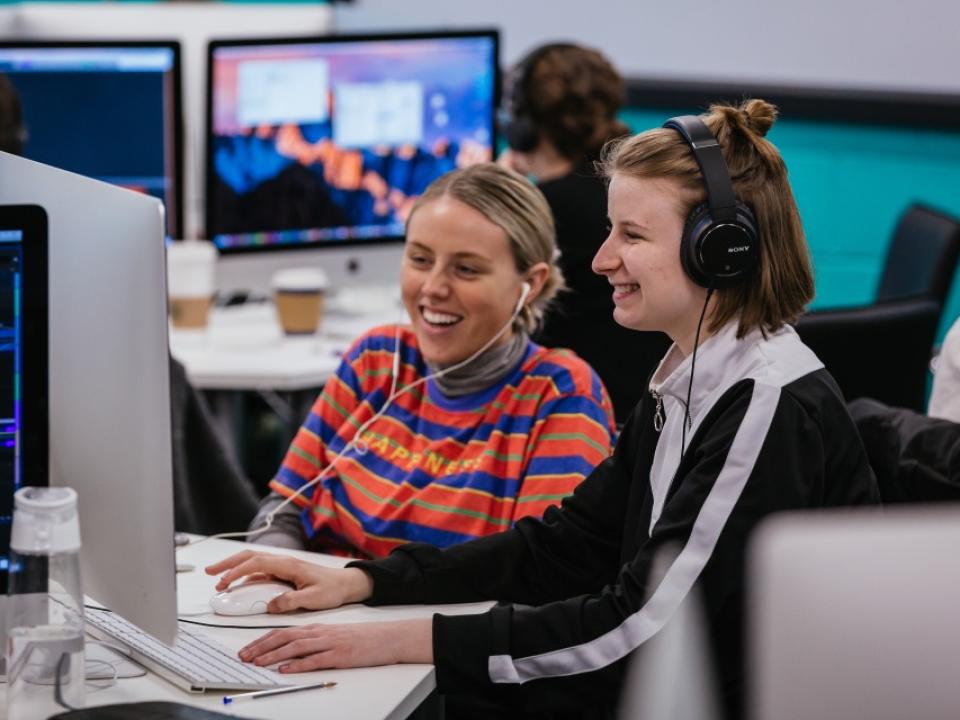Overview
Are you interested in exploring how culture, media and politics shape our world? Are you curious about what drives innovation and future trends? DCU’s BA in Social Sciences and Cultural Innovation is a unique degree where you will gain in-depth knowledge in three disciplines - culture, media and politics - whilst also developing key competencies to underpin your success in a wide variety of careers.
On this course you will:
- explore the meaning and power of culture
- examine the hugely influential role played by media and technology in society
- and you’ll learn about national and international political systems
Is this course for me?
If you’re stimulated by learning how to design creative approaches to social issues and you’re keen to have flexibility to develop the knowledge, skills and abilities that enable you to carve out your own career path, then this is the course for you.
Three or four year degree
You can complete the BA in Social Sciences and Cultural Innovation degree in three years, or choose to take an extra year either to study abroad or complete an INTRA placement.
Why DCU
DCU People

Hi, I’m Martin Toal and I teach on the BA in Social Sciences and Cultural Innovation here at DCU.
Read more about Martin Toal
Careers & Further Options
Careers
There is a pressing need for graduates who are future-focused, problem solvers, critical thinkers, excellent communicators, highly digitally literate, creative, ethically aware, as well as reflective and empathetic. DCU’s BA in Social Sciences and Cultural Innovation explicitly targets these competencies, ensuring that you will develop and be able to demonstrate the skills and attributes which are highly sought after by employers. The unique combination of key transferable skills and discipline-specific expertise ensures that you will be equipped to carve your own unique career path in an increasingly unscripted labour market and across a variety of sectors.
- Digital and Traditional Media
- Public Relations
- Marketing
- Politics
- Policy Development
- Government and Non-Governmental Organisations (NGOs)
- Strategic Consultancy
- Social Entrepreneurship
- Creative and Cultural Industries
- International Political and Commercial Organisations
- Corporate Social Responsibility
DCU graduates are highly sought after by employers. Our Graduates work in environments ranging from large multinationals to SMEs, family businesses and start-ups across every sector.
DCU Careers Service has a number of learning and development initiatives in place for our students, giving them the skills they need for a successful career path.
Entry Requirements
There are no additional entry requirements for this programme apart from the general entry requirements for admission to the university.
There are no additional entry requirements for this programme apart from the general entry requirements for admission to the university.
Please visit our Admissions webpage for details on course requirements or how to apply to DCU.
Please visit our QQI FET webpage for details on DCU courses, open days, campus tours or school visits.
To apply to DCU, please visit www.cao.ie.
Mature entry is a competitive process. Applicants must demonstrate:
- a genuine interest in the programme(s) they are applying for
- academic experience and competency in their chosen field of study
- an ability to engage and succeed on the programme
All applicants must complete a statement of interest to be considered for the mature application route.
For further guidance on the mature application process please see the CAO Website
Applicants that have completed at least one year of study at NFQ Level 6, 7 or 8 at another institution may apply to continue their studies on a similar programme at DCU. There should be substantial overlap in content between the two programmes to be considered for a transfer. Results and other supporting documentation must be submitted to CAO by the closing date of 1st July. This is a competitive application process for a small quota of advanced entry places. Offers are made on a rolling basis until all places are filled. Early application is advised. Please note: Applicants should also consider applying through the appropriate route for first year entry to the programme they are interested in. This application process is only for advanced entry.
International candidates are expected to have educational qualifications of a standard equivalent to those outlined above. In addition, where such candidates are non-native speakers of the English language they must satisfy the university of their competency in the English language. Click here for further information on international applications.
Course Structure
In each year of the BA in Social Sciences and Cultural Innovation, you will take modules from all three pillars of culture, media and politics. You will also enjoy greater flexibility as each new year will bring a greater selection of optional modules to choose from.
Career focused
From the outset your career development is given attention and the degree is designed to ensure that you complete modules on essential transferable skills throughout the course such as leadership, critical thinking, digital literacy and project management.
Opportunity to specialise
In your final year you will specialise in one pillar, while continuing to study the other two at a lesser intensity. You will also have the opportunity to do in-depth research on a particular topic of interest in the form of a dissertation.
More about the three pillars
The course is structured around three specific pillars, comprising both core and optional modules, relating to the study of culture, media and politics.
Self, Society and Innovation
Study key social identities such as gender, nationality, ethnicity and social class; examine the drivers and impacts of globalisation and mass migration; identify local, national and global challenges; and develop creative strategies to address these.
Media, Messaging and the Digital World
Analyse advertising and other media outputs; study the history of journalism and how it is evolving; explore the challenges and opportunities facing traditional and new media in the 21st century, including the ever-increasing role of social media and digital platforms
Politics, Power and Internationalisation
Reflect on the concept of power in personal, political and economic relations; consider how various innovations influence how citizens engage with politics; examine political ideologies and conflicts from around the world; explore diverse approaches to international security and political terrorism.
Year Abroad
Studying abroad at one of our partner universities provides a wonderful opportunity to experience the culture of another country. Our international partner universities are either based in an English-speaking country or are European universities where modules are delivered through English. If you choose to study abroad for your third year, you will add a year to the degree duration and complete your final year in year 4.
INTRA Year
Alternatively you may choose to pursue a year-long work placement that will give you a unique opportunity to enhance your CV, increase your employability and apply your knowledge and skills in the real world. This option is competitive and subject to the availability of placements. For more information on the INTRA programme at DCU, please visit dcu.ie/intra
What Will I Study?
You will study a variety of engaging and innovative core and optional modules from several disciplines.
- Introduction to Communication Studies
- Analysing Visual Media Tests
- Cultural Studies
- Power, Self and Society
- Contemporary Cultural Debates
- Interculturalism in Practice
- Introduction to Modern Ireland
- Introduction to Politics
- Introduction to International Relations and Security
- The Irish Political System
- Social Psychology
- Journalism History
- Ireland, Sex and Text
- Global Cultures
- Social Innovation and Entrepreneurship
- The Making of Contemporary Europe
- Political Ideologies
Optional Modules
- Theorising Social Media in everyday Life
- Social Class in the Media
- Intelligence and National Security
- Changemakers: Service Learning
- Analysing Advertising
- Crime, Policing and the Media
- Women Feminism and the Creative Cultural Industries
- Introduction to Gender Studies
- Perspectives on the Networked Society
Optional Study Abroad / INTRA
- Creativity and the Emerging Future
- Issues in Multiculturalism
- Politics of Sub-Saharan Africa
- Communication Culture and the Environment
- Dissertation
Optional Modules
- Media Law
- Television Drama
- Press and Public Relations
- Perspectives on International Children’s Literature
- The Politics of Migration in Europe
- Science, Technology and Society
- Climate Change and the Media
- Sexualities, Languages and Society
- Conflict Resolution in Northern Ireland
- Nationalism and Populism in the 21st Century
- Representing Otherness
- Anglo-Irish Literature: The Novel and the Short Story
- Languages of Business and Media Across Cultures
- Post Soviet Politics
- Politics of South Asia
- Issues in American Politics
- Contemporary Politics of the Middle East and North Africa
- Perspectives on Chinese Culture
- Race and the Media
- Uaneen Award: DCU’s Leadership and Engagement Module
Note: Optional modules are chosen subject to timetabling constraints.
Fees and Funding
Fees
How To Apply
Applicants presenting EU School Leaving/FETAC Level 5 examinations: Apply through the Central Applications Office (CAO) by 1st February or 1st May
To apply for this programme:
Candidates should apply directly here. Here's a quick step by step guide if you need help with your application.
Please provide
- Academic Transcripts for each and every year of study with English translation, if applicable.
- If applicable, provide evidence of competence in the English language as per DCU entry requirements.
Applications are accepted on an ongoing basis up to 1st July. All Non-EU candidates are advised to apply early, as places are limited.
All mature applicants apply through the CAO by 1st February. For further information and for special application procedures for mature students, please click here
Applications are made via the CAO Advanced Entry route which will open on the 5th of November to 1st July.
Please see Application Procedures or E-mail ugadmissions@dcu.ie.
Candidates submitting EU examination results are required to apply through the CAO at www.cao.ie
Candidates submitting non-EU examination results are required to apply directly here
Life On Campus
You will be spoiled for choice with clubs and societies at DCU. Make sure you check them out and you might be interested in the Media Production Society, Politics Society, Enterprise Society, Marketing and Innovation Society, the Enactus society, Raising and Giving Society, Volunteer Overseas Society and much more!
At DCU, our students can expect a unique campus experience. We are known for our excellent teaching and learning facilities, our active clubs and societies, and our great social and sporting facilities. All this makes DCU an exciting place to be.
DCU has three academic campuses; Glasnevin, St. Patrick’s and All Hallows (both in Drumcondra), all close to Dublin City centre.
They can be reached by public transport, Dublin Bus and Bus Éireann, with our Drumcondra campuses a ten minute walk from Drumcondra Train Station. Glasnevin is a 20 minute walk from St Patrick’s and All Hallows. They are also linked by Dublin Bus.
Each campus has a library (O’Reilly, Cregan and Woodlock Hall), study spaces, restaurants, and on-campus residencies. There are sports facilities on Glasnevin and St. Patrick’s, and there is a dedicated sports campus, St Claire’s, located near Glasnevin on the Ballymun Road.
DCU’s 19,000 students have access to exceptional teaching and learning facilities across our three academic campuses.
These include modern learning theatres, research centres, a new media and TV studio, radio/podcast studios, computer suites and advanced labs in the areas of Languages, Engineering, Physics, Chemistry and Biotechnology, as well as a Sports Performance centre and a training hospital ward. In 2021, we opened our first virtual reality ‘Leadership Lab’, which is located in our Business School.
We continue to improve and update our facilities. For example, construction of a new world-class STEM facility is underway on the Glasnevin campus. With capacity for an extra 3,000 STEM students, this facility will advance DCU’s international reputation for excellence in science and health, computing and engineering disciplines.
Studying in DCU isn’t just about course work. The university is rich in student life and activities.
There are more than 140 clubs and societies for students in DCU, with ‘Clubs & Socs’ days taking place on both the Glasnevin and Drumcondra campuses at the start of the academic year. They span everything from rugby to rock climbing, anime to jazz.
For many students, sport is an important part of the DCU experience. DCU’s Sports Complex boasts a 25 metre swimming pool, fitness centre gym, all-weather pitches and squash courts, as well as soccer, GAA and rugby pitches. DCU Dóchas Éireann, the university’s GAA club, is the largest third level Gaelic Games club in the country. Meanwhile, DCU Athletics has been Ireland’s highest achieving university club for many years. And DCU has dozens of other clubs to get involved in, from Archery to Weightlifting.
The Glasnevin campus is home to our purpose built, state-of-the-art student centre, The U, which serves the needs of a rapidly growing student body. Here, you will find the Student Leadership and Lifeskills Centre, performing arts and cultural spaces for students and the wider community, and the Entrepreneurship and Innovation Hub. Also located on our Glasnevin campus is The Helix, our renowned performing arts centre.
On our St Patrick’s campus, we have the Java Student Hub, a vibrant, warm and welcoming space where students can meet for coffee, play music, use the projector to watch events, or just relax. The walls of the Java Hub were designed based on the cultural history of St Patrick’s Campus, including the special references to the notable sporting history and history of the arts.
We have a number of academic, professional and social supports for students.
Student Advice & Learning Skills Centre - Offers a wide range of supports and services to students and advice
The Writing Centre - drop-in writing workshops for students through the academic year
Maths Learning Centre - provides maths support for students of all ability levels with maths modules
Student Learning - facilitate the transition from passive to active learning for students at DCU, by teaching study skills, nurturing critical thinking and building student confidence.
Careers work with students to help them on their professional journey into graduate employment.
Our student support team offers a comprehensive support programme, helping students make that all important transition into university life and focusing on building confidence and skills which are key to success at third level.

DCU Glasnevin Campus
FAQs
What is the Social Sciences and Cultural Innovation (DC238) degree all about?
The BA in Social Sciences and Cultural Innovation is a new offering in Irish higher education. It offers a unique combination of modules from the fields of Sociology, Media, Politics and Innovation.This future-focused programme is designed to equip students for the 21st century workplace and a world defined by increased connectivity and rapid technological change. We aim to give you an opportunity to learn more about social entrepreneurship and cultural innovation. This degree also offers students a chance to gain valuable work experience and to form an international worldview as they have a possibility of studying for a year abroad after Year 2, and can also opt to apply for a year-long INTRA work placement in Year Three.
Is the BA in Social Sciences and Cultural Innovation a three or four year programme?
You can complete the BA in Social Sciences and Cultural Innovation degree in three years, or choose to take an extra year either to study abroad or complete an INTRA placement.
Is DCU all one campus?
DCU is a multi campus university - the Glasnevin, St Patrick's and All Hallows campuses. The St Patrick's campus is where the Education courses are taught and some of the subjects from the BA Joint Honours degree. There is a 20-25 minute walk between the campuses but there are buses and bikes available to go between them also.
Click here to see maps of all of our campuses
If I'm studying on the St Patrick's campus, can I use the library and sports centre on the Glasnevin campus?
Yes, all facilities such as sports and accommodation are open for all DCU students to avail of.
Are there libraries in DCU and if they have wifi and work stations?
We have a brand new state of the art four floor library on our St. Patrick's Campus which complements the existing library on the Glasnevin campus. There is free wifi, work stations as well as desktop computers.
Does DCU provide accommodation?
DCU does have on-campus accommodation for undergraduate and postgraduate students, and you can find out more and apply via the Accommodation Office webpage.







